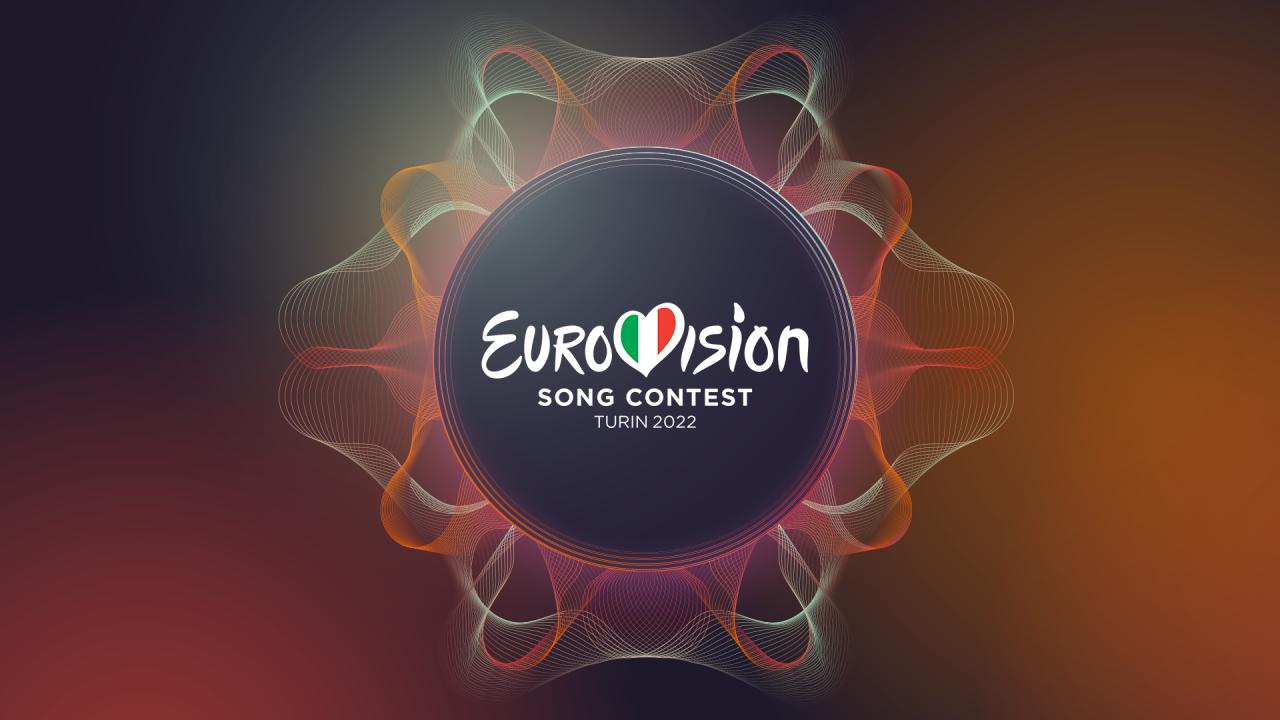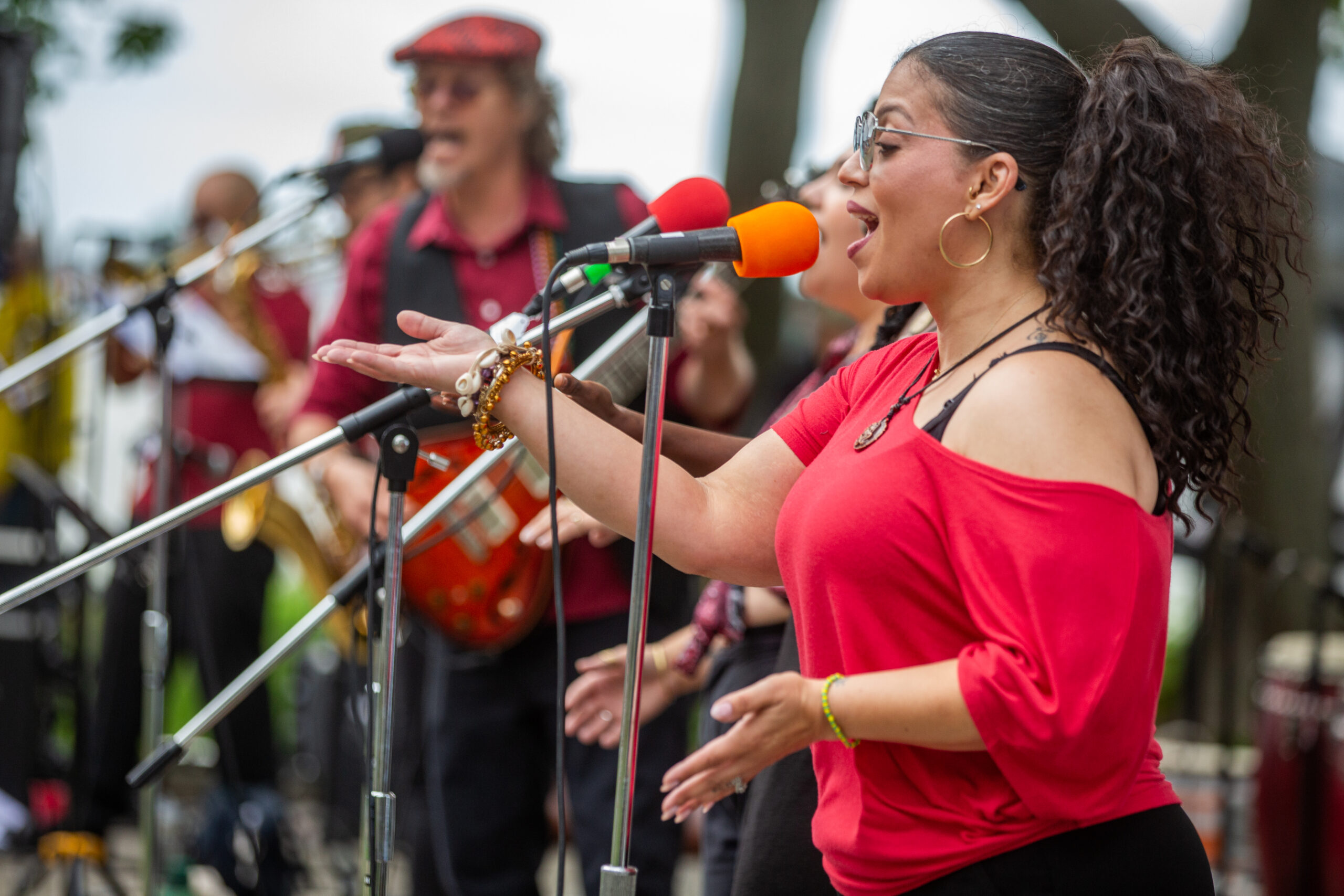By Jonathan Kieran
Every year it seems like there’s another attempt to lure the large US broadcast audience into a love affair with the Eurovision Song Contest, the annual televised pop music competition that’s been running on the continent since 1951. You may recall Netflix’s Eurovision-themed comedy starring Will Ferrell and Rachel McAdams. NBC’s streaming app Peacock, where the ceremonies will stream this year between May 10th and 15th, has carried the contest to US audiences since 2021. And beginning in March, NBC spawned its own American Song Contest, in case you want to cheer on Michael Bolton as he represents the great state of Connecticut.
So what is Eurovision? It might help to think of it as an “Idol”-style singing show, with original songs instead of covers, de-localized to include an entire continent and carried out with the cheery internationalism of an Olympic opening ceremony. The majority of nations in Europe participate (40 this year), plus Israel and for some reason Australia. Local selection process in each country is governed by national broadcasters, who may have mini-contests of their own (like Italy’s Sanremo Festival, or just select a winner by jury.
The process only gets more arcane from there, so I’ll spare you my attempt at a breakdown. I find that knowing more or less about, for instance, the old rich weirdos who choose the Academy Award nominees doesn’t have much to do with whether I think the movies are any good, and that’s my philosophy in the case of Eurovision as well. But, if you’re the type of person who can’t enjoy March Madness until they understand what a “seed” is (seriously, why is it called a seed!?), Wikipedia will get you as far into the weeds as you want to go.
The end result of the months-long multinational process is 3 nights of phenomenal TV: two semifinals and one final competition that, while they don’t put up World Cup numbers, handily net 150-200 million viewers. So why has Eurovision struggled to take hold in the US? The mass appeal seems obvious: an event-TV extravaganza focused on whose country came up with the hardest-hitting pop belter. There are heart-warming artist backstories for the human-interest lover, cool costumes and staging for those of us who are just here for the aesthetic, and always good-old-fashioned nationalism for everyone else.
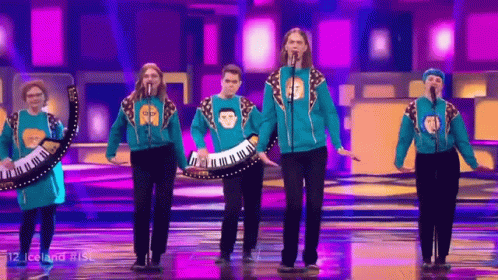

As a casual, but dedicated, Eurofan, I feel it’s my duty to try and fix this. If I can bring the light to even one Eurovision-less American, it will all have been worth it.
So, where to begin? There are 40 tunes from 40 countries battling it out this year, and if you want to jump in with both ears you can simply skip the rest of this article, pop on the official ESC playlist and see what catches your fancy. Or if a several-hour listening session seems too daunting, let me highlight a few notable tracks in this year’s field.
But first: what kind of person are you? it’s a heavy question to throw into a blog post about a song fight, but you’ll need to be armed with this self-knowledge if you want to proceed. Eurovision is an exercise in mass taste, with every song vying to please the most people. But in this guide, I want to please you. So: what’ll it be?
Ballads for the sadness connoisseur
One of the mainstays of any year at Eurovision is the ballad, probably the most easily and immediately identifiable type of entry. If you watch the song’s video and there’s a guy with over-styled hair wandering around an empty house, or standing next to (and not playing) a piano, congratulations, it’s a ballad!
Teasing aside, this is a heavy-hitting style that often gets up there on the scoreboard. Duncan Laurence’s Arcade nabbed Euroglory for the Netherlands in 2019, and I personally expected Gjon’s Tears’ entry for Switzerland, the falsetto-soaked Tout l’Univers to be a shoo-in for 2021.
Your Champion: Maro, “Saudade Saudade” (Portugal)
There’s a wide field of slow-and-sad jams to pick from this year, but this is the one that catches my ear. The stage version is a nicely-tuned production, but I prefer this acoustic take, which showcases the vocal harmonies and wistful acoustic guitar. And that’s coming from someone who’s normally allergic to guitar of any kind in Eurovision tunes.
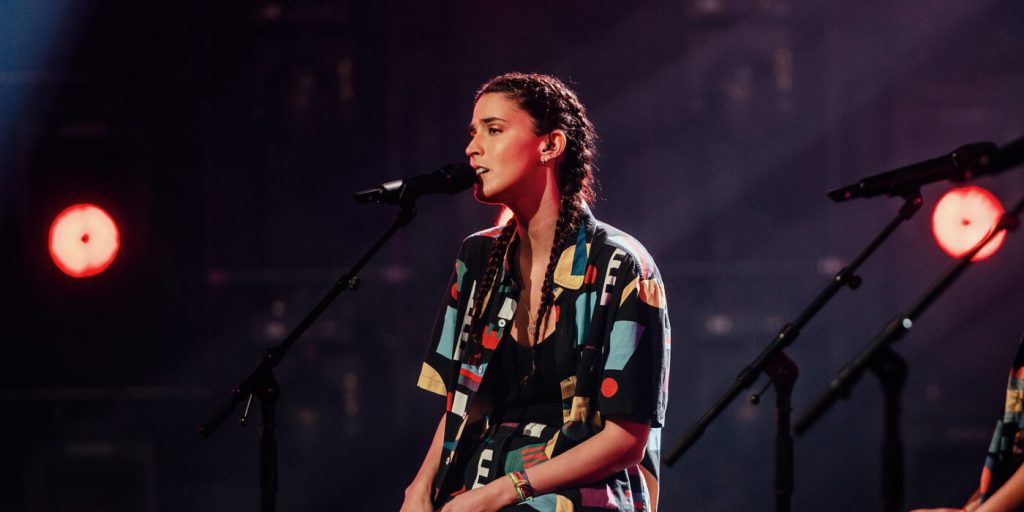

I’d be remiss if I didn’t also mention Mahmood’s & Blanco’s “Brividi,” a follow-up to Italian rapper Mahmood’s “Soldi.” “Brividi” is sitting pretty at the top of a lot of online polls, as well as floating around the top of bookmaker’s betting odds (that’s right, people bet on the song fight). The song itself is bland (there, I said it!), but it’s smart money if you’re into picking winners.
Folk-pilled bangers for the world traveller
Given that European nations encompass so many folk-music traditions, it’s not surprising that so many acts have mined their local sounds in search of Eurovision success, grafting instruments, rhythms, and vocal styles from their home countries onto familiar pop forms. Folk sounds play a big part in two of my favorites from 2019, Conan Osiris’ “Telemoveis” and Tulia’s “Fire of Love”, both of which were cruelly cut down in semi-finals. The same mix of folk and pop propelled Go_A’s “Shum” to near-greatness in 2021. Year in and year out, you can always expect a few bonafide ethno-bangers in the mix.
Your Champion: Kalush Orchestra – “Stefania” (Ukraine)
Russia’s invasion of Ukraine has by now touched almost every corner of the world, and Eurovision is not immune. While Russia has been removed from the competition after public outcry, members of Ukraine’s Kalush Orchestra have been sending social media messages from areas of active fighting and are currently touring elsewhere in Europe and meeting with Ukrainians fleeing war along the way.
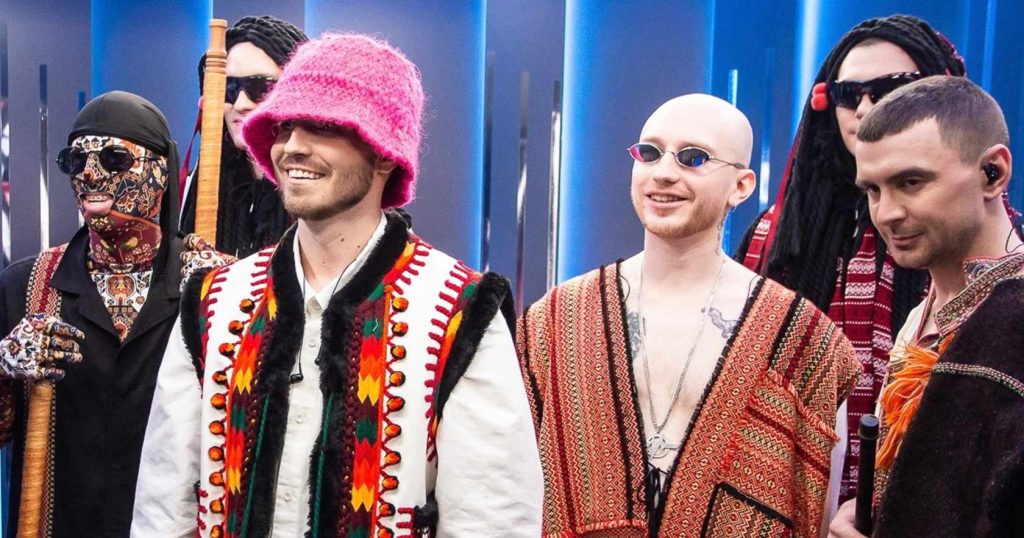

Also, I simply must steer you toward Ronela Hajati’s “Sekret.” The way the song folds Balkan sounds into a familiar chunky dancehall beat is textbook Eurovision fun, and the video is…easier watched than described.
Genre throwbacks for old people and aspiring old people
One of the things that keeps Eurovision fresh is that there’s no formula for greatness. Winners have come from all over the map, stylistically speaking. That said, in Eurovision as in pop music at large, there’s always money to be made by recycling something that worked last time. Witness LPS (looking very much like a Slovenian wedding band) playing their 2022 entry Disko. Can you guess what their influences are?
Your Champion: The Rasmus – Jezebel (Finland)
Nowadays pop commentators tend to agree that guitar rock, once the backbone of popular music, is dead, or at least in a very deep sleep. Maybe a coma. And, as much as I enjoy the odd rock and/or roll, I have to confess that seeing axe-slinging acts turn up on the Eurovision stage gives me an unpleasant shock, even in the case of 2021 season winner, Maneskin’s “Zitti e Buoni,” a butt-rock Golem built on stitched-together Frankenriffs. For some reason, Finland has become ground zero for this kind of dusty rock tropism. Last year they went as far as to basically send a Limp Bizkit cover band to the big show in Rotterdam.
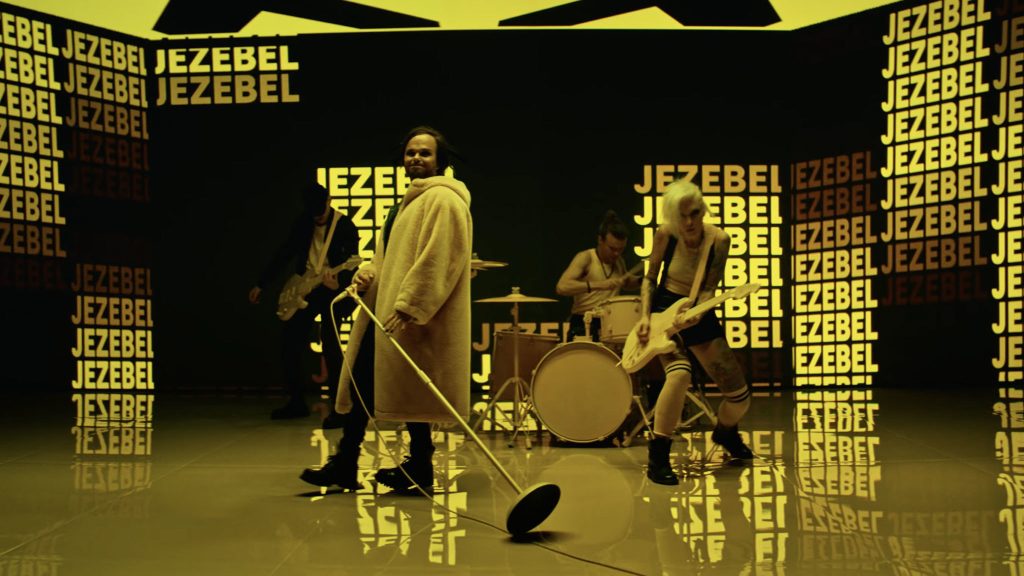

Sometimes this strategy results in something delightful, like the Finns’ 2006 winner Lordi, a band that should absolutely be paying franchise rights to GWAR. The axe-slinging this year will be done by the Rasmus, a band that has been apparently been on the Helsinki scene since 1994. Look, I’m not going to pretend I love this one, but hey, they can’t all be Hatari!
Pop piss-takes for the terminally goofy
In so much art, what separates the great from the good is a sense of humor, playfulness, the ability to derive joy from the absurd, the wry, and the cute. One of the things I truly love about Eurovision is its rich culture of goof, from Stefan Raab’s immortal “Wadde Hadde Dudde Da” to quarantine-era Icelandic sensation Daði Freyr, who recently toured the U.S. off the strength of songs like “Think About Things.” Songs with wacky concepts and jokey lyrics don’t just compete in Eurovision, they’re often in the top tier of the competition
Your Champion: Konstrakta, “In Corpore Sano,” Serbia
In addition to being the first-ever Eurovision entry to be sung (partly) in Latin, Konstrakta’s deadpan art-rock tune stands out from this year’s field for its mysterious opening hook: “What could be the secret of Meghan Markle’s healthy hair?”
The minimal production on this track and Konstrakta’s ironic delivery remind me strongly of the great American pop experimentalist Laurie Anderson, and like Anderson her catchy tune carries darker shades of meaning, about the struggle to survive as an artist with no health insurance.
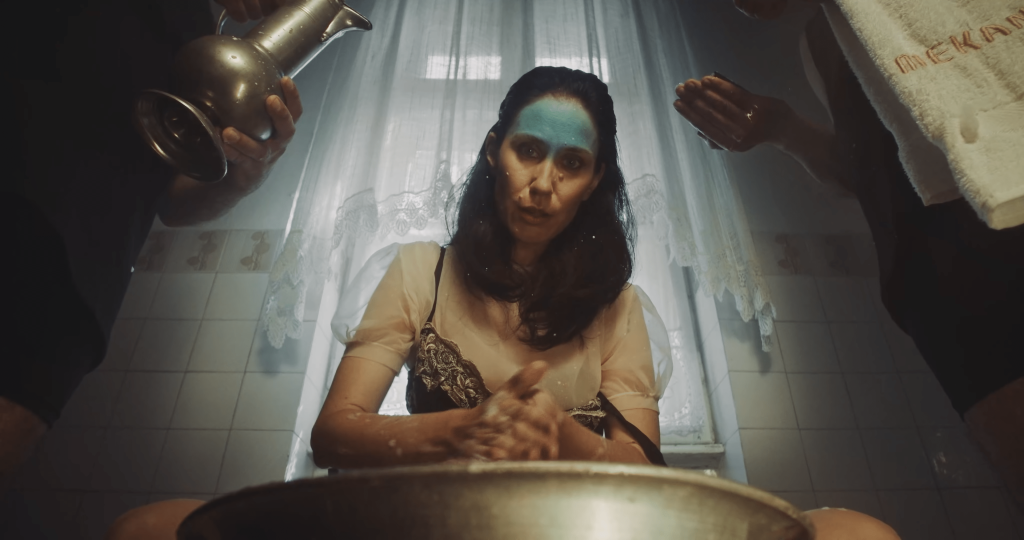

Two other songs which stand out for their yes-nonsense attitude are Same Ryder’s “Space Man” representing the U.K. and Subwoolfer’s “Give That Wolf a Banana,” both crowd favorites heading into semi-finals. Personally, I’ll be rooting for Konstrakta.
Jonathan Kieran is a film programmer, slow reader, novice synthesist, and little-bit-of-everything-liker. Twitter: @JonKieran
What is Creative Collective?
Creative Collective is a group of economic development strategists, small business supporters, activation specialists, and believers in the importance of the creative workforce. We foster growth, sustainability, and scalability for small businesses, creative thinkers, organizations, entrepreneurs, and innovators.
Learn more and join Creative Collective at www.creativecollectivema.com/join




